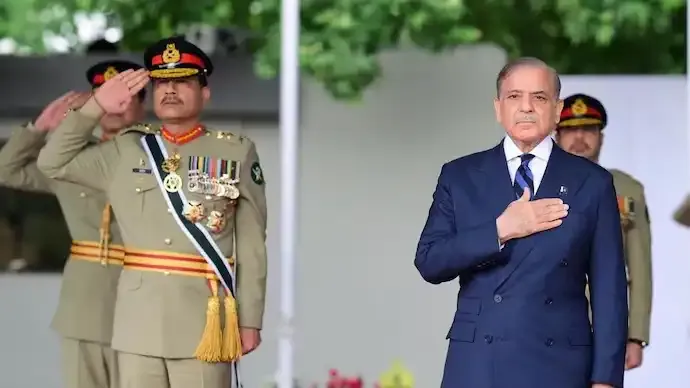Shopping cart
Your cart empty!
Terms of use dolor sit amet consectetur, adipisicing elit. Recusandae provident ullam aperiam quo ad non corrupti sit vel quam repellat ipsa quod sed, repellendus adipisci, ducimus ea modi odio assumenda.
Lorem ipsum dolor sit amet consectetur adipisicing elit. Sequi, cum esse possimus officiis amet ea voluptatibus libero! Dolorum assumenda esse, deserunt ipsum ad iusto! Praesentium error nobis tenetur at, quis nostrum facere excepturi architecto totam.
Lorem ipsum dolor sit amet consectetur adipisicing elit. Inventore, soluta alias eaque modi ipsum sint iusto fugiat vero velit rerum.
Sequi, cum esse possimus officiis amet ea voluptatibus libero! Dolorum assumenda esse, deserunt ipsum ad iusto! Praesentium error nobis tenetur at, quis nostrum facere excepturi architecto totam.
Lorem ipsum dolor sit amet consectetur adipisicing elit. Inventore, soluta alias eaque modi ipsum sint iusto fugiat vero velit rerum.
Dolor sit amet consectetur adipisicing elit. Sequi, cum esse possimus officiis amet ea voluptatibus libero! Dolorum assumenda esse, deserunt ipsum ad iusto! Praesentium error nobis tenetur at, quis nostrum facere excepturi architecto totam.
Lorem ipsum dolor sit amet consectetur adipisicing elit. Inventore, soluta alias eaque modi ipsum sint iusto fugiat vero velit rerum.
Sit amet consectetur adipisicing elit. Sequi, cum esse possimus officiis amet ea voluptatibus libero! Dolorum assumenda esse, deserunt ipsum ad iusto! Praesentium error nobis tenetur at, quis nostrum facere excepturi architecto totam.
Lorem ipsum dolor sit amet consectetur adipisicing elit. Inventore, soluta alias eaque modi ipsum sint iusto fugiat vero velit rerum.
Do you agree to our terms? Sign up

Pakistan witnessed widespread protests on Sunday as opposition parties mobilised nationwide demonstrations against the Shehbaz Sharif government’s proposed 27th Constitutional Amendment, a controversial bill that seeks to expand the powers of Army Chief Field Marshal Asim Munir and fundamentally alter the balance between civilian and military institutions.
The amendment, introduced in the Senate on Saturday by Law Minister Azam Nazir Tarar, proposes the creation of a new post — Chief of Defence Forces (CDF) — to be held by the sitting Army Chief. This position would formally make Munir the constitutional head of Pakistan’s Army, Navy, and Air Force, consolidating his control across the military establishment.
According to the draft, the CDF would enjoy lifetime immunity from prosecution, an unprecedented provision that opposition parties say could effectively place the military beyond the reach of civilian law. Critics have described the proposal as a direct assault on Pakistan’s fragile democracy.
“After this amendment, Field Marshal Munir is building a wall of protection around himself,” said a Pakistan Tehreek-e-Insaf (PTI) spokesperson. “He fears accountability for his actions, so he is securing lifetime immunity.”
Beyond strengthening the army chief’s position, the amendment also introduces the Federal Constitutional Court (FCC) — a new judicial body that would assume the Supreme Court’s power to interpret the Constitution and settle disputes between the federal and provincial governments.
The proposed FCC would diminish the Supreme Court’s authority, leaving it with only appellate powers in routine civil and criminal cases. Legal experts warn that this would amount to “amending the judiciary out of existence.”
Furthermore, the amendment grants lifetime immunity to the President and redefines how high court judges are appointed — a move that analysts say undermines judicial independence.
Political analyst Habib Akram compared the proposed changes to Zia-ul-Haq’s 8th Amendment, which centralized presidential powers during the 1980s military regime. “This will increase political bitterness and economic instability. History shows such overreach always backfires,” Akram said.
The opposition alliance Tehreek-e-Tahafuz Ayeen-e-Pakistan (TTAP) — comprising PTI, Majlis Wahdat-e-Muslimeen (MWM), Balochistan National Party-Mengal, Pashtunkhwa Milli Awami Party, and the Sunni Ittehad Council — launched a coordinated protest campaign across Pakistan on Sunday.
MWM chief Allama Raja Nasir Abbas declared that democratic institutions had been “paralysed,” urging citizens to “rise against dictatorship.”
PkMAP leader Mahmood Khan Achakzai, while announcing demonstrations in Quetta, Peshawar, and Lahore, stated:
“Our slogans will be: ‘Long live democracy’ and ‘Down with dictatorship.’ We also demand the immediate release of political prisoners.”
Meanwhile, opposition lawyers described the 27th Amendment as “the end of judicial independence,” warning that it would transform the Supreme Court into a “Supreme District Court” with limited powers.
If passed, the amendment will require approval from both the Senate and National Assembly, where the ruling coalition is confident of securing a two-thirds majority. Once ratified, President Asif Ali Zardari is expected to sign it into law.
Political observers see the amendment as a defining moment in Pakistan’s civil-military struggle — one that could entrench the army’s dominance under a constitutional veil. For many, it evokes memories of past authoritarian eras where the military’s shadow loomed large over elected governance.
As protests intensify across major cities, the battle over the 27th Amendment has reignited a familiar question in Pakistan’s turbulent democracy: who truly rules — the parliament, or the generals?
34
Published: Nov 09, 2025